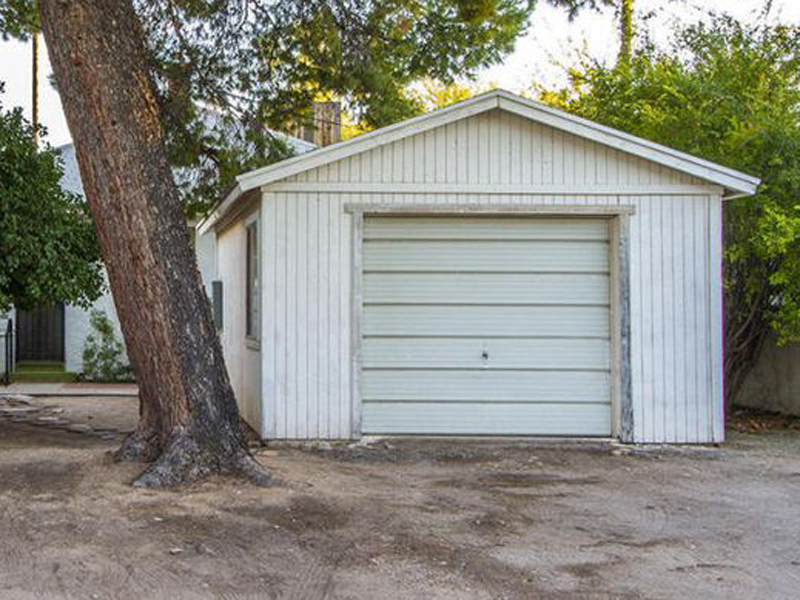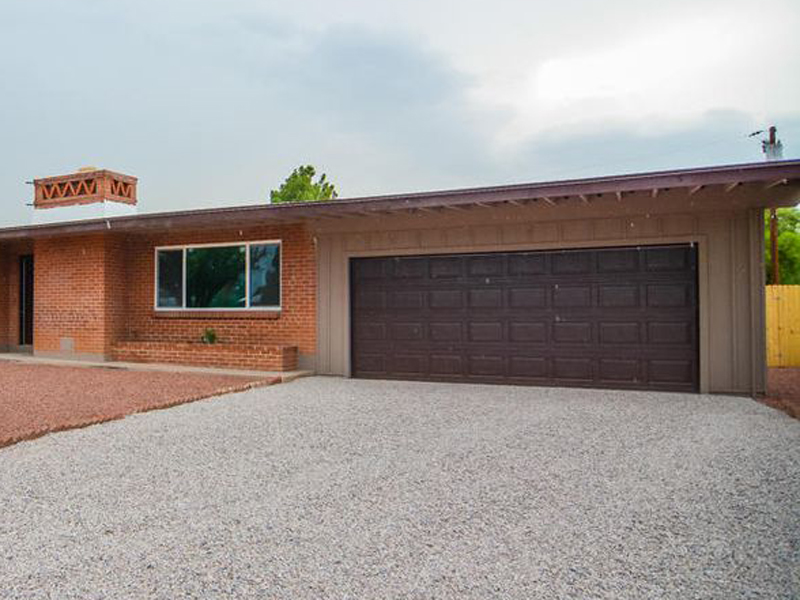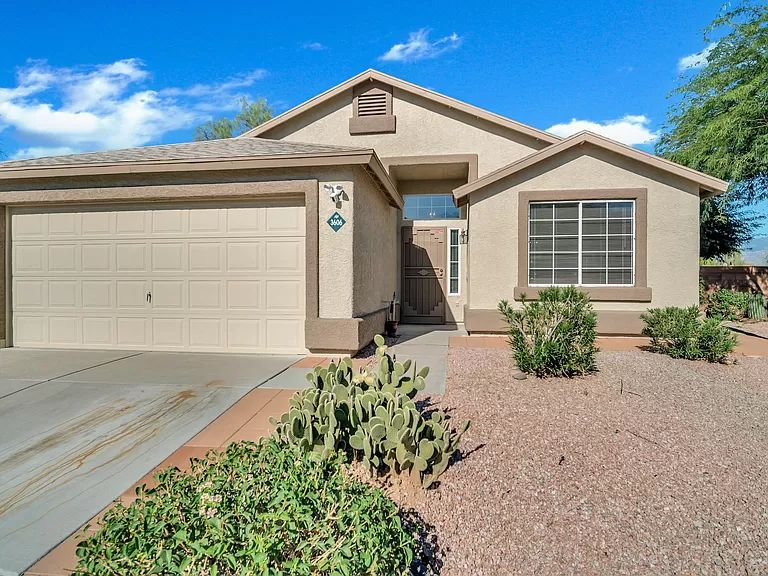Can Not Open Up Garage Door - Step-by-Step Fix Guide
Is Your Garage Door Stuck? Below's What to Do Very first
When your garage door will not open up, start with these essential safety checks before attempting any kind of repair services. First, make sure no one is standing near the door and that vehicles are clear of the opening. Seek apparent signs of damages like busted panels, curved tracks, or hanging cables. If you see a snapped spring or seriously harmed elements, quit instantly and call an expert—-- these repairs require specialized tools and proficiency to deal with safely.

Examine These 6 Things Before Calling a Professional
Before presuming you need expensive repair services, run through this fast diagnostic checklist that solves most garage door problems:
-
Power source: Verify the opener is plugged in and the electrical outlet is functioning
-
Remote batteries: Change dead batteries in your remote
-
Manual lock: Examine if somebody unintentionally involved the manual lock
-
Obstructions: Try to find particles obstructing the door's course or sensors
-
Emergency release: Guarantee the red emergency situation cord hasn't been drawn
-
Breaker: Validate the garage circuit hasn't tripped
These straightforward checks resolve approximately 70% of garage door problems without calling for expert treatment.
10 Typical Reasons Your Garage Door Will Not Open Up
Understanding why your garage door opener isn't functioning helps you pick the best service. Below are the most regular reasons home owners experience:
Dead remote batteries stand for the simplest solution—-- when batteries die, the remote can't send signals to the opener. Power blackouts or stumbled breakers reduced electrical power to the motor. Damaged springtimes avoid the door from lifting appropriately and need immediate professional attention. Sensing unit imbalance reasons security systems to obstruct door procedure. Track blockages quit rollers from relocating efficiently. Motor overload triggers automatic shutoffs when the opener identifies resistance. Limitation button problems puzzle the opener concerning door placement. Wire damages interferes with the training system. Weather-related issues influence door motion throughout severe temperatures. Element wear from age gradually minimizes system performance.
Issue # 1: Dead Remote Control Batteries
When your wall button works yet your remote does not, dead batteries are normally the offender. Many garage door remotes make use of either 3-volt lithium or 12-volt alkaline batteries. Get rid of the back cover of your remote and examine the battery type. Change with fresh batteries and check the remote. If it still does not function, you might require to reprogram it to your opener. Consult your opener's guidebook for certain reprogramming instructions, as the procedure varies by manufacturer.
Issue # 2: Power Supply Issues
Garage door power problems commonly stem from loosened links or tripped circuits. Inspect that the opener is firmly connected into its electrical outlet—-- vibration can loosen up connections in time. Test the electrical outlet with another gadget to verify it's functioning. Examine your home's breaker box for stumbled circuits, particularly if you have actually experienced tornados or power fluctuations. GFCI outlets might have stumbled and require resetting. If the opener has power however will not respond, the problem most likely lies somewhere else in the system.
Trouble # 3: Broken or Damaged Springs
Busted garage door springtimes are amongst one of the most hazardous elements to manage. If you listen to a loud bang from your garage or see the door really feels very heavy when attempting to lift manually, a spring has actually likely broken. Torsion springtimes run horizontally over the door, while expansion springs sit on either side. Never try springtime repair work on your difference between torsion springs and extension springs own—-- these components keep tremendous stress that can cause severe injury or fatality. Professional replacement commonly costs $150-$300 however ensures your safety and security.
Trouble # 4: Obstructed Security Sensors
Modern garage doors include safety and security sensing units that protect against closure when items are found. These sensing units can quit the door from opening if they're unclean, misaligned, or blocked by debris. Clean sensor lenses with a soft fabric and make sure nothing blocks the unseen beam between them. Inspect that sensing units are correctly lined up—-- many have indication lights that reveal link standing. Sensing unit issues frequently solve with easy cleaning and change.
Trouble # 5: Track Obstructions or Damages
Garage door tracks guide rollers as the door goes up and down. Dirt, debris, old oil, or little items can jam the system. Check tracks visually and get rid of any obstructions with a brush or cloth. Seek damages, flexes, or bending that can impede smooth operation. Minor track modifications are feasible for useful home owners, yet substantial damage needs specialist repair work to prevent additional troubles or security threats.
Problem # 6: Garage Door Opener Electric Motor Issues
When the garage door motor runs however the door does not relocate, a number of concerns could be accountable. The motor might be overloaded and shutting off as a safety measure. Equipment wear, specifically in older devices, can protect against appropriate operation. Chain or belt drive troubles affect power transmission. If you hear unusual grinding, clicking, or humming noises, quit making use of the opener immediately. Electric motor fixings usually cost more than substitute, particularly for devices over one decade old.
Detailed Do It Yourself Troubleshooting Overview
Follow this methodical technique to garage door fixing while prioritizing safety and security throughout the procedure:
Step 1: Examine the wall switch first. If it works yet the remote does not, concentrate on remote issues. If neither works, examine power supply.
Step 2: Take a look at the hand-operated release cable. If it's been pulled, the opener is disengaged from the door. Push the cart back to reconnect.
Action 3: By hand test the door by disengaging the opener and attempting to lift the door by hand. It should relocate smoothly and stay in location when half-open.
Tip 4: Evaluate visible parts for damages, paying unique attention to springs, cables, and tracks.
Tip 5: Check all security functions consisting of sensing units, limitation switches, and auto-reverse features.
Step 6: Test various controls (remote, wall surface button, keypad) to isolate the problem source.
Constantly put on safety glasses and work gloves when executing assessments, and never ever effort fixings on springtimes or high-tension components.
When to Call a Specialist vs. do it yourself Solutions

Recognizing when to call a garage door professional versus attempting do it yourself repairs shields both your safety and security and your budget. Deal with these issues yourself: dead remote batteries, power supply problems, small track cleaning, sensor cleaning and positioning, and basic lubrication.
Never attempt these repairs on your own: spring substitute or modification, cable television repair services, significant track realignment, electrical circuitry concerns, opener motor substitute, or any fixing involving high-tension parts. Expert service technicians have actually specialized tools, training, and insurance to manage hazardous fixings safely.
Take into consideration repair work expenses versus substitute prices, especially for doors over 15 years old. Modern garage doors provide much better safety and security features, power effectiveness, and dependability than older designs.
Emergency Situation Garage Door Solutions
When you're stuck to a garage door that won't open up and need immediate access, comply with these emergency treatments:
Handbook Procedure: Draw the red emergency situation release cord to disengage the opener. This permits hands-on procedure but needs proper technique to stay clear of injury. Lift the door gradually and equally, utilizing leg muscular tissues instead of your back. Many residential doors weigh 100-150 pounds, making them convenient for a lot of grownups.
Momentary Solutions: If the door opens up manually but will not keep up, prop it open with sawhorses or clamps—-- never ever utilize your body or vehicles as assistances. For doors that won't close entirely, make certain the opening is protected if you should leave.
Emergency situation Service: Several garage door business supply 24/7 emergency situation solution for scenarios including protection problems, caught cars, or full system failings. While more costly than routine solution telephone calls, emergency repairs provide prompt remedies when needed most.
Safety and security Caution: What NOT to Do
Garage door safety requires understanding hazardous fixings that should never be tried by house owners:
Never try to fix springs—-- they store sufficient power to create deadly injuries when they snap or are improperly taken care of. Do not force a stuck door—-- this can damage the opener, tracks, or door panels, producing much more costly troubles. Avoid bypassing safety features—-- sensors and auto-reverse systems protect against severe injuries and building damages.
Do not ignore unusual noises—-- grinding, scratching, or banging audios show troubles that worsen over time. Never ever utilize the door if cable televisions are frayed or broken—-- the door might drop suddenly. Don't attempt electrical repairs unless you're a certified electrical contractor—-- garage door openers make use of both 120V house current and low-voltage control circuits.

Preventive Maintenance to Stay Clear Of Future Problems
Regular garage door maintenance stops most usual problems and extends system life-span dramatically:
Regular monthly Tasks: Visual assessment of all elements, evaluating auto-reverse safety and security functions, checking and tightening up equipment, and cleaning tracks and sensing units.
Quarterly Jobs: Oiling all moving get rid of ideal garage door lubricant, screening manual operation, and examining climate securing.
Yearly Tasks: Specialist inspection and tune-up, spring modification if needed, and opener upkeep including belt or chain adjustment.
Seasonal Tasks: Planning for climate extremes, checking insulation, and adjusting opener settings for temperature level changes.
Constant maintenance expenses far less than emergency situation repairs and makes certain trusted operation year-round.
Garage Door Will Not Open Up Frequently Asked Questions
Why will not my garage door open with the remote yet deals with the wall switch?
This typically indicates dead remote batteries, signal disturbance, or the need to reprogram the remote. Examine batteries first, after that consult your opener guidebook for reprogramming directions.
Can I manually open my garage door if the power is out?
Yes, pull the red emergency situation launch cord to disengage the opener, then raise the door manually. Be prepared for the door's complete weight and lift with appropriate strategy to avoid injury.
How do I recognize if my garage door springtime is damaged?
Indicators consist of a loud bang from the garage, the door sensation very heavy when lifting by hand, visible voids in the springtime coils, or the door only opening a couple of inches prior to quiting.
Is it secure to utilize my garage door if it won't open up right?
No, partial procedure indicates mechanical issues that could aggravate suddenly. Stop making use of the door and have it evaluated by a specialist to avoid additional damages or injury.
What should I do if my garage door opens up but won't shut?
Inspect safety sensing units for obstructions or imbalance, check out the tracks for particles, and check the auto-reverse feature. If these do not fix the issue, seek advice from a specialist.
Just how much does it cost to fix a garage door that won't open?
Costs differ extensively depending on the trouble: battery substitute ($5-$10), expert medical diagnosis ($50-$100), springtime replacement ($150-$300), or opener replacement ($200-$500).
Can weather impact my garage door's capacity to open up?
Yes, severe cold can thicken lubes and affect metal parts, while warmth can cause growth problems. A lot of problems deal with as temperatures normalize, but relentless problems might need professional focus.
Why does my garage door open a few inches then quit?
This generally suggests damaged springs, limit button problems, or track obstructions. The opener's safety features quit operation when resistance is identified, avoiding damage to the motor or door.
Obtain Expert Help for Complex Issues
When do it yourself fixing does not fix your garage door problems, professional service technicians give the knowledge and devices needed for secure, long lasting fixings. Certified experts identify issues properly, utilize manufacturer-approved parts, and provide service warranties on their work.
Professional solutions consist of: thorough system assessments, spring and cable substitute, opener repair work and replacement, track placement and substitute, electrical troubleshooting, and emergency situation solution phone calls.
What to expect: in advance prices, accredited and insured specialists, same-day solution for lots of repair services, and follow-up maintenance recommendations.
Many garage door firms use totally free estimates for major repair services and can provide prompt remedies for immediate issues impacting home protection or lorry gain access to.
Obtaining Your Garage Door Working Again
A garage door that will not open up does not have to wreck your day or break your budget. Start with easy troubleshooting steps like inspecting power, replacing batteries, and checking out for apparent blockages. Several issues have quick do it yourself services that bring back regular procedure within minutes.
Nonetheless, acknowledge when specialist aid is necessary—-- especially for spring-related issues, electrical issues, or complex mechanical failings. Trying harmful repair services yourself risks severe injury and usually develops a lot more expensive issues.
Normal upkeep protects against most garage door concerns and makes certain dependable procedure for years to find. When problems do happen, resolve them without delay to avoid even more pricey fixings and keep your home's safety and security and convenience. Whether you need a basic battery substitute or complete system overhaul, remedies exist to get your garage door functioning efficiently again.
Eddie's Garage Door Service
5505 N La Canada Dr, Tucson, AZ 85704
(520) 965-8259